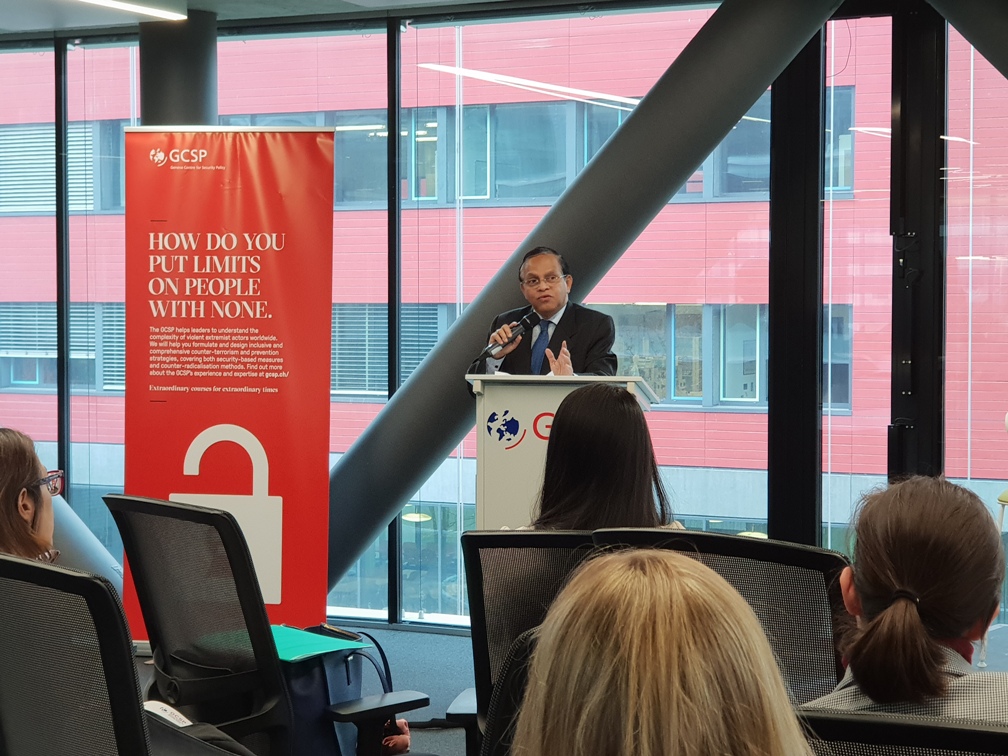
“Preventing the threat of use of biological agents is a key priority for Sri Lanka”, stressed Sri Lanka Permanent Representative in Geneva Ambassador Azeez, addressing the International Seminar convened by the Geneva Centre for Security Policy (GCSP) and the Implementation Support Unit (ISU) of the Biological Weapons Convention (BWC) on 'the importance of disease surveillance and alert mechanisms: lessons for the BWC’ held on 20 November 2018.
The Seminar focused on the operationalization of Article 7 of the Biological Weapons Convention (BWC), which accentuated the importance of technical assistance and international cooperation, to respond effectively to epidemics involving bio-agents.
Representing Sri Lanka at this health - security interface forum, Ambassador Azeez explained the existing disease surveillance mechanism in Sri Lanka, which comprises a wide range of medical and administrative networks including at national, provincial, and district levels. He also drew attention to the role and contribution of hospitals and primary health care units in addressing this challenge efficaciously as well as to laws and policies in place in this context. “Continuing work on strengthening the existing system involved further updating of policies and programmes to empower the National Disease Surveillance System is part of an integrated health-security mechanism”, he added.
While outlining the challenges Sri Lanka faces in the arena of disease surveillance, the Permanent Representative of Sri Lanka further stated that despite the existence of a robust disease surveillance system, the effective prevention and control of diseases including through laboratory management in line with international standards remains a continuing priority. He commented that Sri Lanka has an exemplary platform which could be further built on, to be more effective in meeting new and emerging challenges as well as unanticipated outbreaks of epidemics, with the active support of all stakeholders.
The need for a web-based surveillance system that facilitates heightened surveillance by integrating hospitals at all levels as well as the effective pursuit of a meaningful public-private partnership, which could enhance the feeding of data into the central database, was highlighted at this forum. Such carefully developed partnerships, it was stressed, would go a long way in ensuring efficacious responses to future challenges.
Prof. Maurizio Barbeschi, a scientist at the WHO working on global health emergencies, appreciated Sri Lanka’s system of disease surveillance, indicating that it provided an appropriate base to be further worked on as a model.
Health Security experts representing Japan, Russia and South Korea, and regional and international organisations and the private sector also made presentations on the varied aspects of disease surveillance mechanisms that are in practice in their respective countries and organisations and their effectiveness in responding to sudden outbreaks of epidemics, including those resulting from the use of bio-agents as security threats.





